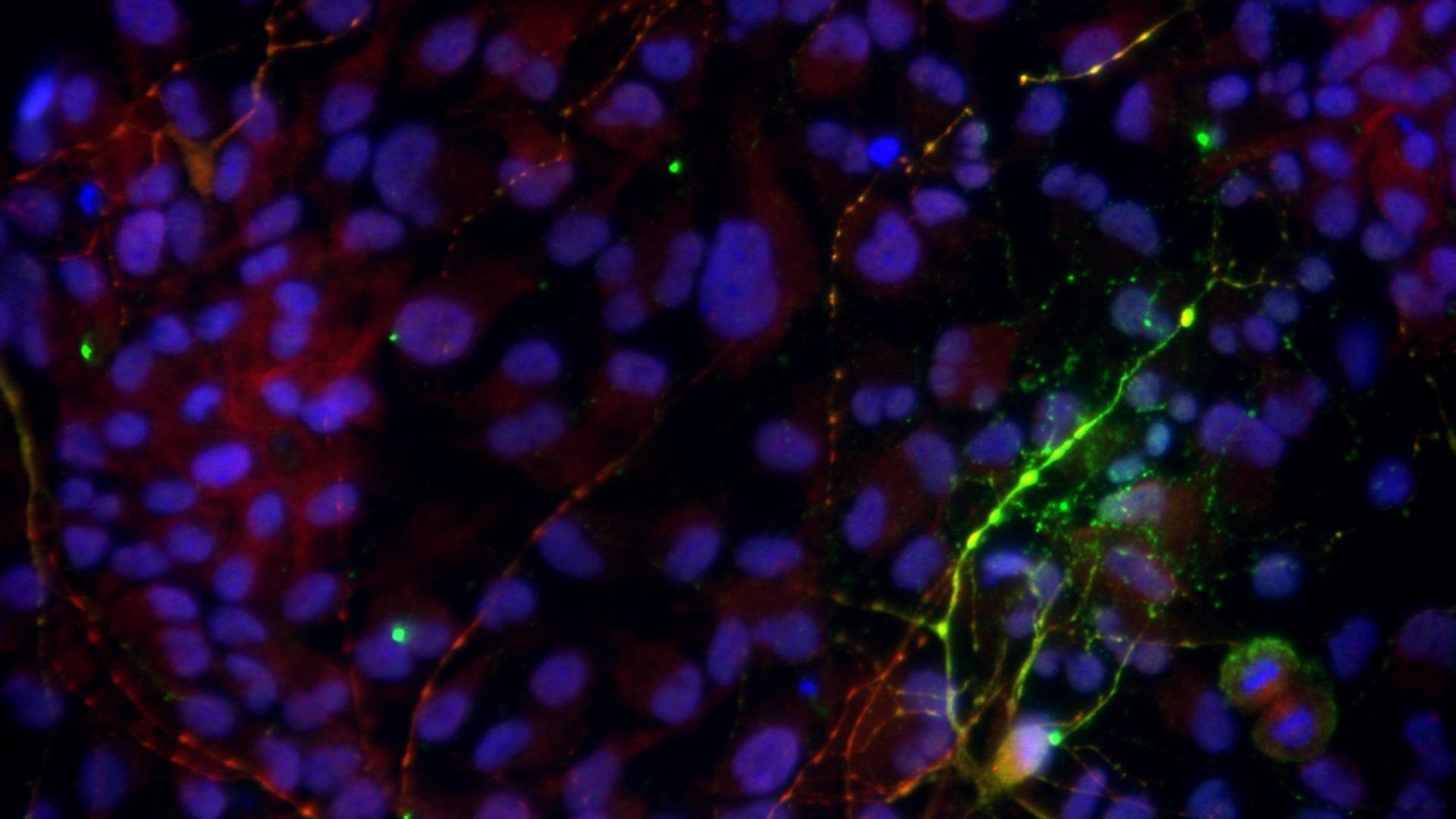In FTD, Pathway Discovered Between Gene Mutations and Neurodegeneration
Written By: BrightFocus Editorial Staff



Written By: BrightFocus Editorial Staff

What: Scientists have singled out a sequence of events preceding cell death associated with frontotemporal dementia and Alzheimer’s disease.
Where: Bowles et al, “ELAVL4, Splicing, and Glutamatergic Dysfunction Precede Neuron Loss in MAPT Mutation Cerebral Organoids,” Cell 2021
BrightFocus Connection: The work of first author Kathryn Bowles, PhD, of the Icahn School of Medicine at Mount Sinai University in New York, NY, was supported in part by an Alzheimer’s Disease Research (ADR) postdoctoral fellowship grant. She was mentored on the project by coauthor Alison M. Goate, PhD, chair of Genetics and Genomic Sciences at Mount Sinai, who is a past BrightFocus grantee; a mentor or collaborator on other BrightFocus grants; and a past member of the ADR Scientific Review Committee.
Why it is Important: Frontotemporal dementia (FTD) is a variety of disorders that make up 5–6% of all dementias and 20% of dementia cases in people under the age of 65. A subcategory of Alzheimer’s disease (AD), FTD is linked to genetic mutations in the microtubule-associated protein tau (MAPT) gene, denoted as FTD-tau. Previous research has shown that certain changes in the brain of people with an FTD-tau correlate with degenerating synapses and neuron loss. As a result, scientists are looking to identify molecular changes and disease biomarkers that precede cell death so that they can then develop therapies that interrupt neurodegeneration and stall FTD and Alzheimer’s.
This study relied on cerebral organoids to better understand the events that take place in the brain leading up to FTD. These organoids, sometimes called “mini-brains,” are derived from human-induced pluripotent stem cells (ie, cells grown from adult human tissue, usually skin cells) that can be obtained from people with known genetic mutations that cause disease pathology. Lab-made mini-brains have brought new hope to studying and treating neurodegenerative diseases in humans, giving researchers the opportunity to study disease-associated processes in brain tissue.
The mini-brains developed for this study expressed a specific type of FTD-tau called tau-V337M. The scientists set out to discover early alterations in these organoids linked to the mutation that precede neurodegeneration. As early as 2 months, the researchers began to see changes in the mini-brains expressing the tau-V337M mutation. Early changes included misprocessing of tau and accelerated tau accumulation, breakdown of protein clearance mechanisms, and increased stress response aggregates, By 6 months, organoids showed loss of the same neurons affected in FTD, in part due to overstimulation of brain receptors leading to the release of toxic substances (ie, glutamate toxicity). The authors observed that it is possible to “rescue” those mutant neurons prior to the damage inflicted by glutamate toxicity using a specific drug.
This study pinpointed a sequence of events that precedes neurodegeneration in a specific type of FTD-tau mutation (ie, tau-V337M), and the researchers call for future studies to determine the relative contribution of these and other MAPT mutation-associated changes. That information could help identify potential targets for therapeutic intervention in FTD and Alzheimer’s disease.
BrightFocus Foundation is a premier global nonprofit funder of research to defeat Alzheimer’s, macular degeneration, and glaucoma. Through its flagship research programs — Alzheimer’s Disease Research, Macular Degeneration Research, and National Glaucoma Research— the Foundation has awarded nearly $300 million in groundbreaking research funding over the past 51 years and shares the latest research findings, expert information, and resources to empower the millions impacted by these devastating diseases. Learn more at brightfocus.org.
Disclaimer: The information provided here is a public service of BrightFocus Foundation and is not intended to constitute medical advice. Please consult your physician for personalized medical, dietary, and/or exercise advice. Any medications or supplements should only be taken under medical supervision. BrightFocus Foundation does not endorse any medical products or therapies.
